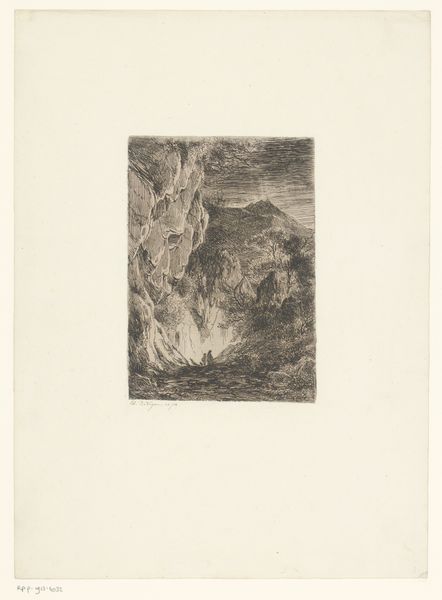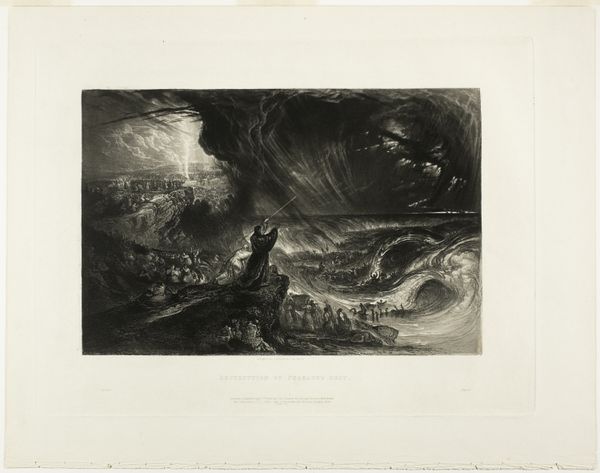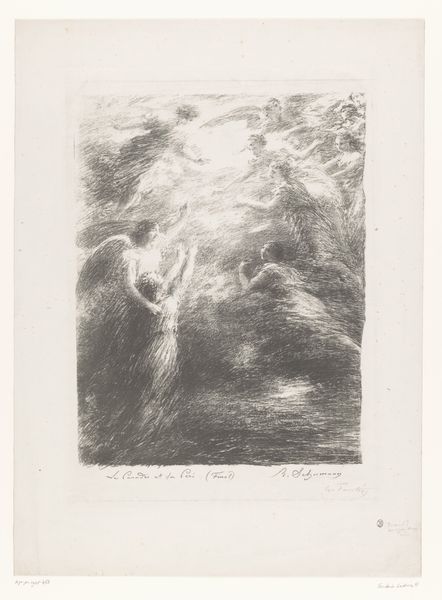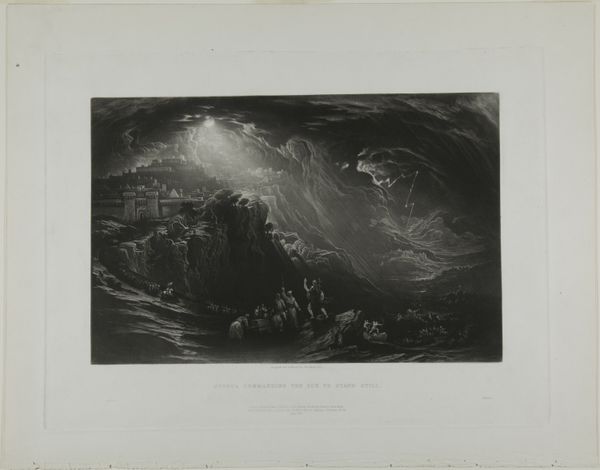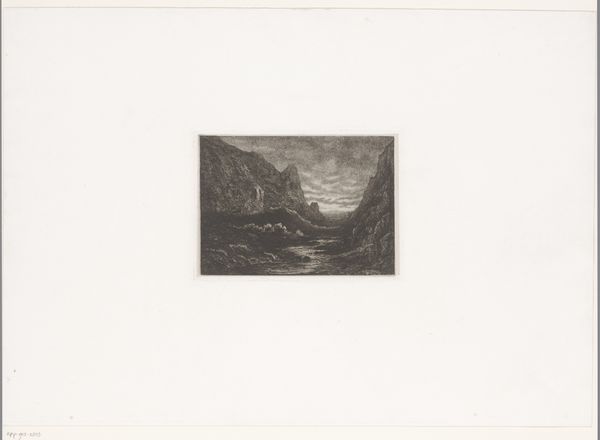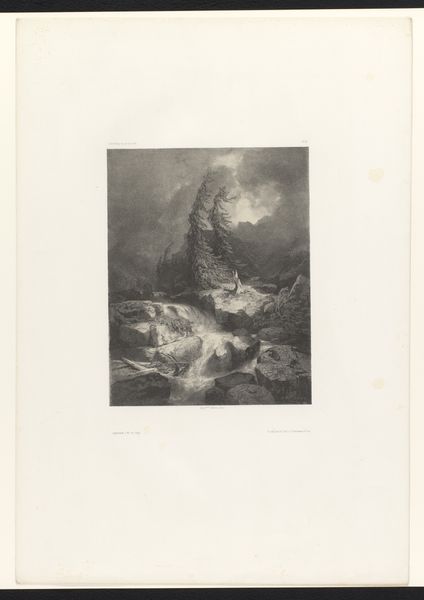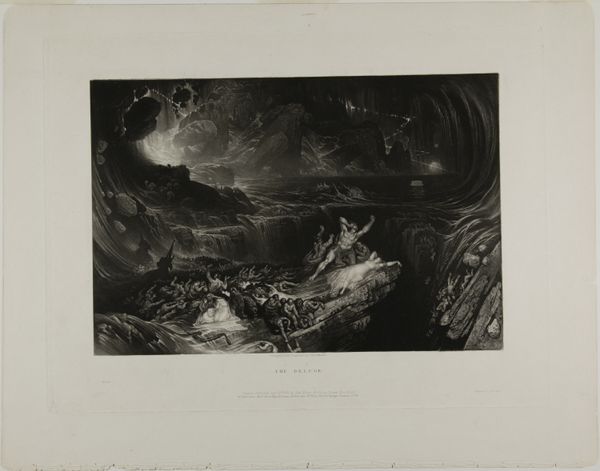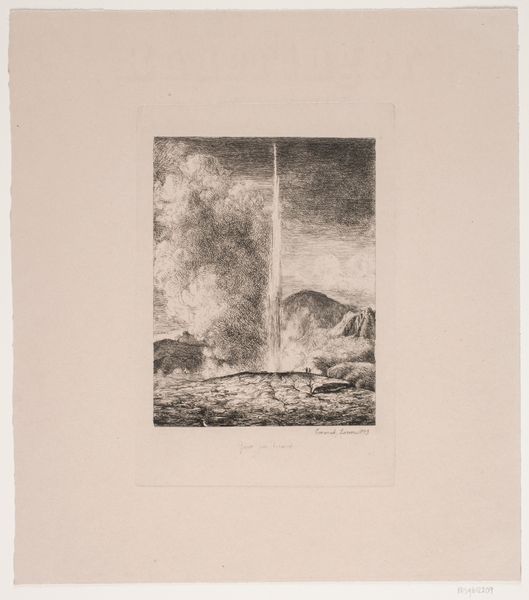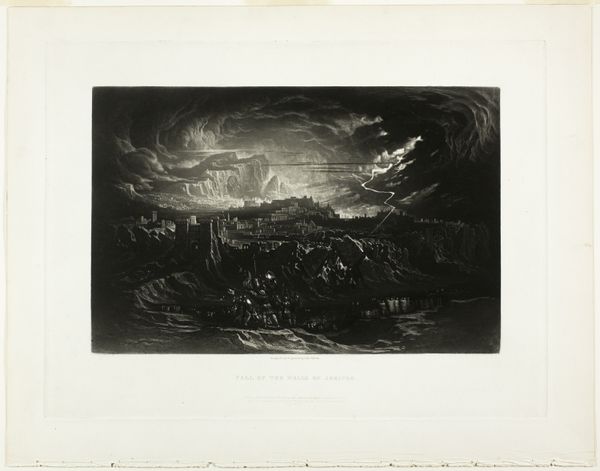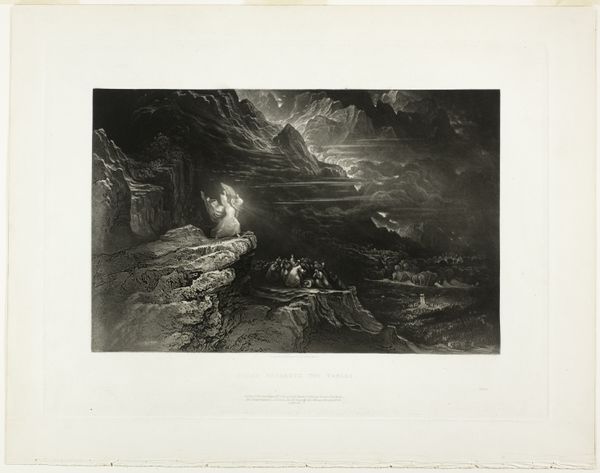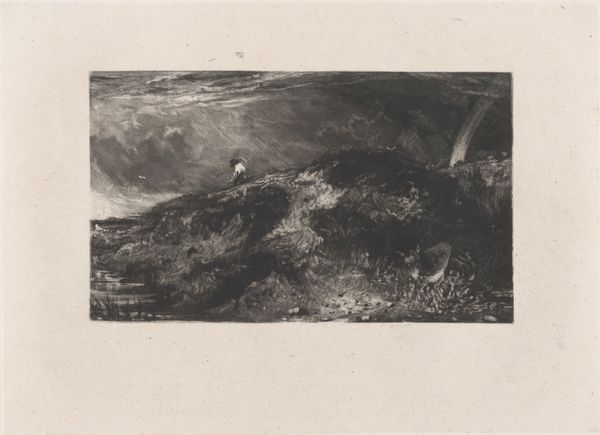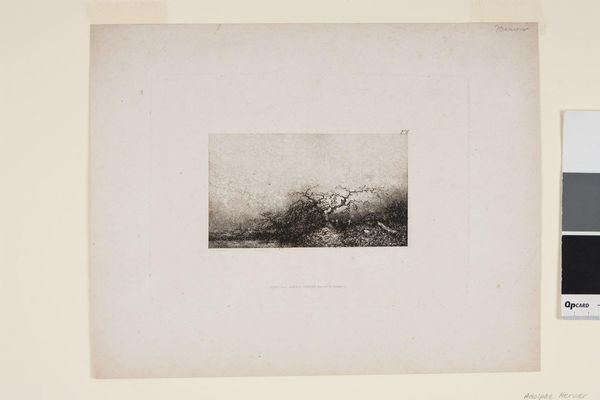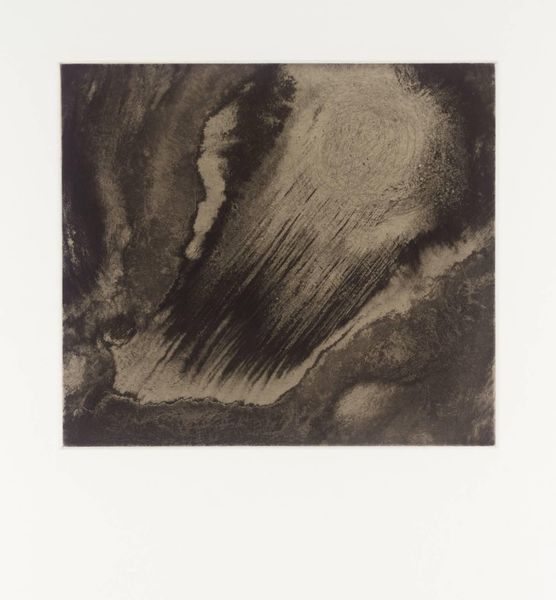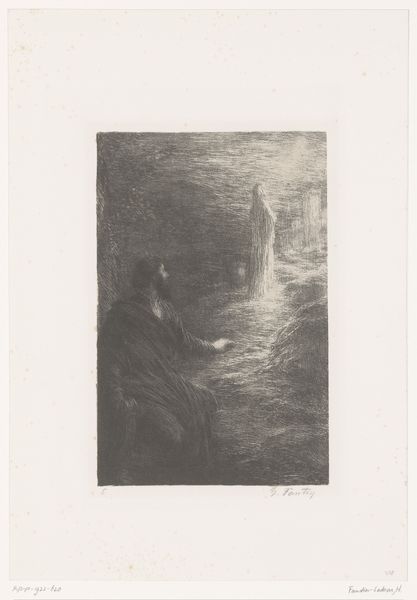
Dimensions: Image: 19.3 Ã 15.1 cm (7 5/8 Ã 5 15/16 in.) Plate: 26.6 Ã 19.4 cm (10 1/2 Ã 7 5/8 in.) Sheet: 34 Ã 27.2 cm (13 3/8 Ã 10 11/16 in.)
Copyright: CC0 1.0
Curator: The dramatic contrasts in John Martin's print, "Satan Viewing the Ascent to Heaven," immediately evoke a sense of awe and isolation. Editor: Indeed. Martin’s print, housed at the Harvard Art Museums, exemplifies how the sublime could be manufactured through aquatint in the early 19th century. Consider the layers involved: the paper, the etching, the printing press—each contributing to its cultural accessibility. Curator: And how the cultural obsession with Milton's "Paradise Lost" shaped the production and reception of such images. Satan, a figure of rebellion, becomes a relatable protagonist within a complex social narrative. Editor: But I see more than just Milton. I see an industry churning out these representations, commodifying the spiritual. It's a dark, brooding image, yet mass-produced for public consumption. Curator: A tension, certainly. The sublime reduced to a consumable object for the burgeoning middle class. Still, the craft itself is undeniable, the manipulation of light through a carefully controlled process. Editor: Agreed. It's a powerful reminder of art's dual role: spiritual expression and commodity. Curator: Precisely, a duality central to understanding its historical impact and continued relevance.
Comments
No comments
Be the first to comment and join the conversation on the ultimate creative platform.
